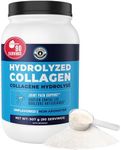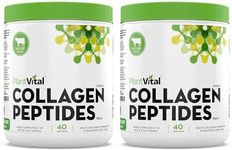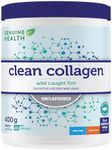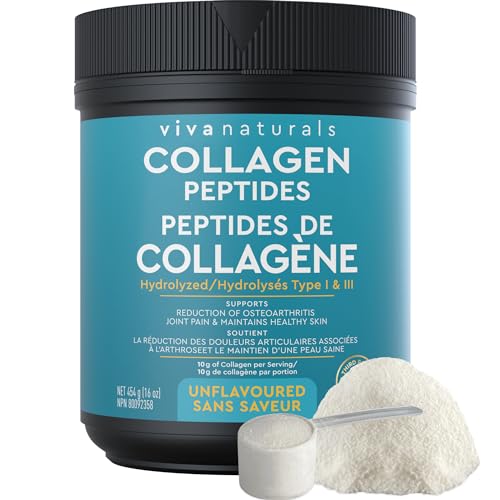Best Collagen Powders
From leading brands and best sellers available on the web.
Sports Research
10%OFF
Sports Research Collagen Peptides - Hydrolyzed Type 1 & 3 Collagen Powder Protein Supplement for Essential and Non-Essential Amino Acids - Easy Mixing Vital Nutrients & Proteins, Collagen for Women &

Organika
5%OFF
Organika Canadian-Made Marine Collagen Powder - Wild-Caught from North Atlantic - 9g Pure Hydrolyzed Collagen For Healthier Skin, Hair, Nails And Joints - Tasteless, 250g

Vital Proteins
19%OFF
VITAL PROTEINS Marine Collagen Peptides Powder, Helps Form Collagen And Reduce Joint Pain Associated With Osteoarthritis, Source Of Amino Acids, No Added Sugar, No Artificial Colours Or Flavours, 221 g

Ancient Nutrition
Ancient Nutrition Multi Collagen Protein Powder - Unflavoured, Formulated by Dr. Josh Axe, 4 Sources, 5 Types of Collagen, 235 Grams

CanPrev
CanPrev Collagen Full Spectrum Peptiplus, 250g Powder - Pure Hydrolyzed Peptides, Optimized for Easy Mixing & Absorption - Bovine Collagen Supporting Joint, Hair, Skin, Nail & Bone

Left Coast Performance
10%OFF
Hydrolyzed Collagen Peptides – Grass Fed Bovine Collagen Powder Types I & III – 3 Month Supply (908g) – Supports Joints, Hair, Skin & Nails – Easily Dissolves, Unflavored, Non-GMO, Gluten-Free

Vital Proteins
5%OFF
VITAL PROTEINS Bovine Collagen Peptides Powder, Single-serve Stick Packs, Unflavoured, Odourless, Gluten-free, No Added Sugar, Paleo-friendly, Non-GMO, No Artificial Flavours Or Colours, 200 g

CanPrev
CanPrev Collagen Beauty Powder 300g 120-Servings - Verisol Bioactive Collagen Peptides - Promotes Radiant Skin, Enhances Elasticity, Supports Hair, Skin & Nails, Convenient & Flavorless for Smoothies

Progressive
5%OFF
Progressive Complete Collagen Vanilla Ice Cream, Canadian-Made, for Healthier Hair, Skin, Nails and Joints. Grass-Fed Non-GMO with Antioxidants, Hydrolyzed with Vitamin C for Best Absorption, 500 g











